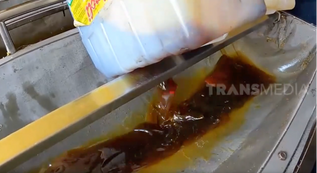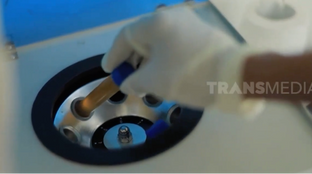From Your Kitchen to Fueling Engines: The Power of UCO

After savouring a delightful dinner of sautéed vegetables, pan-fried fish, and a fresh salad with dressing, a familiar kitchen dilemma emerges: what should you do with all that leftover cooking oil? Should it go in the trash or down the drain? Unfortunately, much of the used cooking oil is still disposed of improperly, either leading to piping and drainage problems (note: going hourly rate of a plumber in Sydney ranges from $100 to $200/hr in 2024), and/or environmental pollution.
Did you know that used cooking oil can be recycled and turned into biofuel, which can then be transformed into Sustainable Aviation Fuel (SAF) to power aeroplanes?. In 2023, Singapore Airlines and Emirates have completed operational tests for SAF engined aeroplanes, bringing us closer to flying aeroplanes powered by used cooking oil!. SAF has the potential to reduce carbon emissions by up to 85% over its life cycle compared to conventional jet fuel.


Used cooking oil (UCO) that refers to oil that has been degraded through cooking or frying, is now considered a commodity and traded internationally. They come from various sectors, including the food industry, restaurants, and households. The global UCO market size was valued at USD 8.37 billion in 2023.
Let’s take a look at our neighbour Indonesia. Having its population of approximately 280 million, they are one of the largest producers and consumers of palm oil globally, and with its long-standing tradition of frying food, resulting in a substantial generation of used cooking oil. In 2022, Indonesia consumed approximately 8 million tonnes of cooking oil, leading to a used cooking oil market valued at USD 600 million—nearly ten times that of Australia. This substantial volume presents significant opportunities for businesses to convert UCO into biofuel, contributing to the green energy sector.
One notable company in this space is ARKAD. Founded in 2018, ARKAD has the mission to transform Indonesia’s waste industry by transitioning from a consumption economy to circular economy.

The company collects and purchases UCO from restaurants, hotels, households, and food factories without imposing a minimum quantity requirement. As a famous quote saying “Little drops of water make the mighty ocean”. This breaks barriers and creates more opportunity for small households in becoming participants in the circular energy creating change to the environment.

Upon collection, the used cooking oil undergoes filtration and processing to remove impurities such as excess water (de-watering) and food scraps. Although this process may seem straightforward, this is a critical step for ensuring that the final products meet necessary specifications, ultimately serving as feedstock for the production of low-emission renewable fuels.
Global demand for biofuel is projected to increase from 146 billion litres in 2020 to between 186 and 342 billion litres by 2026. The logistics sector, in particular, presents numerous opportunities for businesses to produce and supply greener energy. The Australian UCO market was valued at USD 71.50 million in 2023, with significant growth anticipated due to rising environmental awareness and a demand for sustainable fuel alternatives.
Companies like ARKAD are strategically positioned to play a vital role in the expanding biofuel industry. By transforming waste into valuable resources, they not only contribute to a more sustainable future but also help address pressing environmental challenges. As the market continues to evolve, initiatives that promote the recycling of UCO into biofuel will be essential in fostering a circular economy and reducing reliance on fossil fuels.

ARKAD’s business contributes to Sustainable Development goals by providing:

So next time you think about what you should do with the leftover cooking oil after dinner, think about how to do it correctly. Because proper disposal of your used cooking oil is the first critical step that could contribute to the future need for green energy.
For more information please visit www.arkad.co










